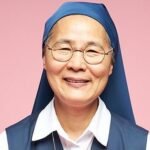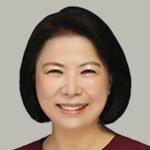(Courtesy of Getty Images)
South Korea will offer incentives including a 50% cut in income taxes to attract foreign scientists to develop new growth drives such as artificial intelligence for Asia’s fourth-largest economy amid the falling population.
The Ministry of Science and ICT unveiled the K-Tech Pass Program, measures to lure 1,000 top-tier overseas scientists by 2030, along with steps to support local researchers in science and engineering sectors.
The government plans to provide special visas for those foreign scientists while increasing the limit on loans for jeonse, lump-sum housing leases in the country, for foreigners to the cap for locals of 500 million won ($381,100) for the visa holders from the 200 million won for all foreigners. The country is also poised to support their family and domestic helpers.
The move came amid growing concerns over a lack of scientists for future industries such as AI as the government sought to increase the number of medical doctors and the population kept falling.
FUND FOR TRATETIC INVESTMENTS
The country aims to ramp up the value of joint researches between local and foreign scientists to 2 trillion won ($1.5 billion) in total by 2028 from 100 billion won this year in partnerships with globally renowned schools such as the Massachusetts Institute of Technology, Yale University, the Johns Hopkins University.
The government plans to raise 2 trillion won in a fund by 2030 dedicated to supporting strategic investments such as acquisitions of foreign companies.
To foster domestic scientists, the country plans to offer scholarships of 5 million won to 1,000 students in masters of science and engineering a year in addition to financial support for their living.
The Korea Advanced Institute of Science and Technology, the country’s top university focusing on research and development, and other major local colleges plan to raise their hiring of postdoctoral researchers by 3,000 in the next 10 years.
The government is poised to take measures for experienced scientists to use their knowledge and know-how after their retirements by providing them with opportunities for re-employments, working with smaller companies and participating in official development assistance programs.
“We will create an environment where science and technology talents can work with pride and fair compensation for their efforts,” said Minister of Science and ICT Yoo Sang-Im.
By Hae-Sung Lee
ihs@hankyung.com
Jongwoo Cheon edited this article.















